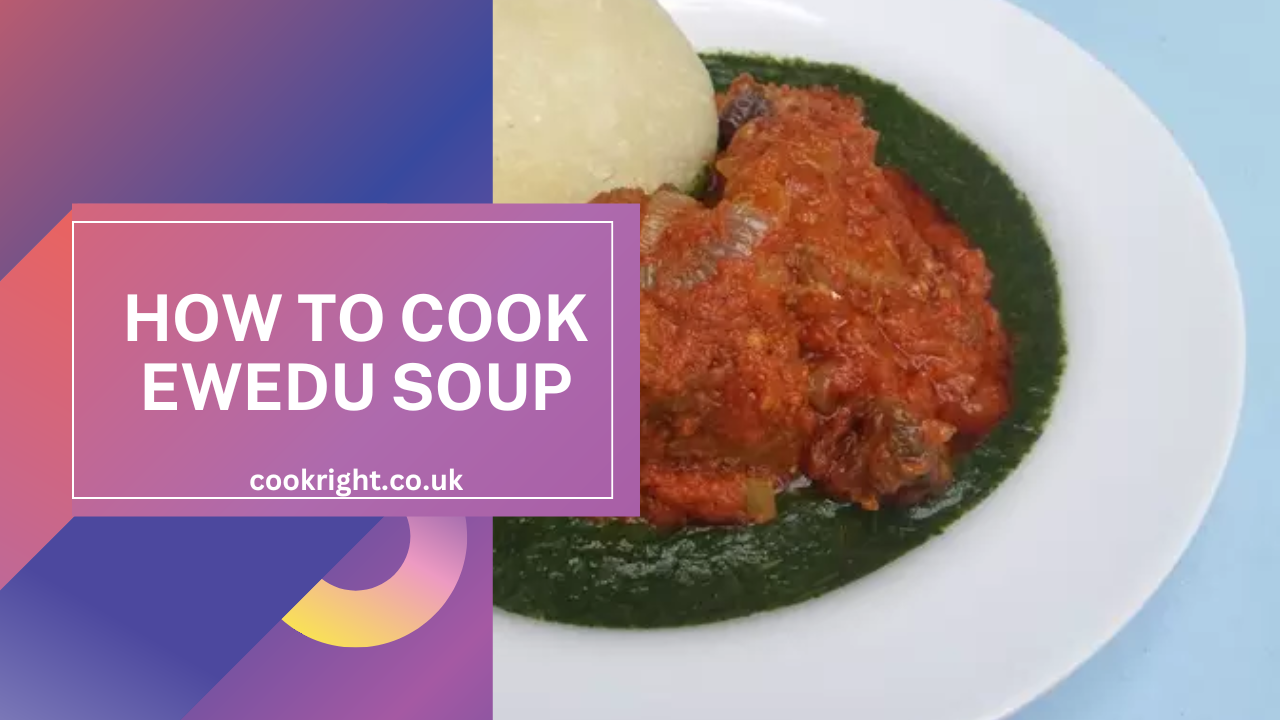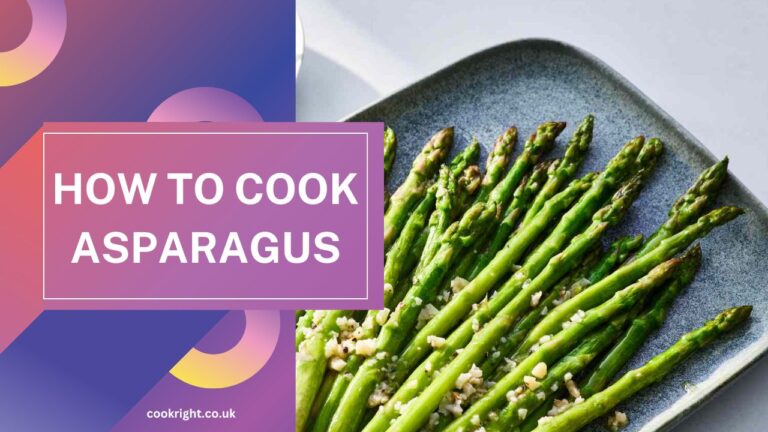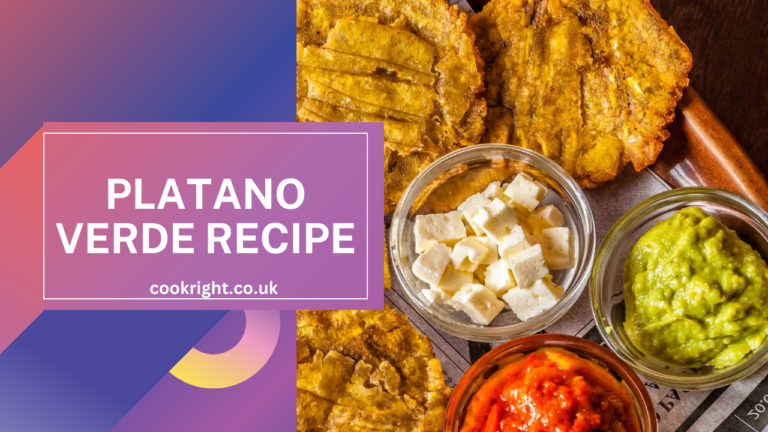Ewedu soup, also known as Jute leaf soup, is a beloved dish in Nigerian cuisine, especially among the Yoruba people. This nutritious and slimy soup is often paired with traditional staples like Amala, Eba, or Pounded Yam. Ewedu soup is known for its unique texture and is rich in vitamins, minerals, and dietary fiber, making it a healthy and delicious choice. Whether you’re new to Nigerian cuisine or looking to perfect your Ewedu soup recipe, this guide will walk you through the entire process.
Ingredients You’ll Need
Before you start, gather all the necessary ingredients:
- Fresh Ewedu leaves (Jute leaves): 2 cups or a bunch
- Water: About 1.5 cups (adjust as needed)
- Potash (Akanwu or Kaun): 1 teaspoon (optional, for softness)
- Ground crayfish: 1 tablespoon
- Seasoning cubes: 1-2 cubes, to taste
- Salt: To taste
- Locust beans (Iru or Ogiri): 1 tablespoon (optional, but recommended for authentic flavor)
- Ground pepper: 1 teaspoon (or to taste)
- Bicarbonate of soda (optional): 1/2 teaspoon, as a substitute for potash
Tools You’ll Need
- Blender or traditional broom whisk (Ijabe): For mashing the leaves
- Cooking pot: Medium-sized
- Sieve or colander: For washing the leaves
- Wooden spoon: For stirring
Step-by-Step Instructions
Step 1: Preparing the Ewedu Leaves
The first step in cooking Ewedu soup is preparing the leaves. Follow these steps:
- Pick the Leaves: Carefully pluck the Ewedu leaves from their stems. Ensure you pick only the fresh green leaves and discard any yellow or wilted ones.
- Wash the Leaves: Wash the leaves thoroughly in clean water. To remove dirt or sand, you can wash them in a bowl and then rinse them in a colander or sieve.
- Chop the Leaves: Chop the Ewedu leaves finely. This step is optional if you plan to blend them, but chopping helps with blending and speeds up the cooking process.
Step 2: Blending the Ewedu Leaves
For a smooth and slimy texture, you’ll need to blend the Ewedu leaves. Here’s how:
- Blend the Leaves: Place the washed Ewedu leaves in a blender, add a small amount of water (just enough to help the blending process), and blend until the leaves are smooth. If you prefer a more traditional method, you can pound the leaves using a mortar and pestle or use an Ijabe (a local broom whisk) to mash the leaves.
- Set Aside: After blending or mashing, set the Ewedu paste aside.
Step 3: Cooking the Ewedu Soup
Now, let’s get cooking! This step is where the magic happens:
- Boil Water: Pour about 1.5 cups of water into your cooking pot and bring it to a boil over medium heat.
- Add Potash or Bicarbonate of Soda: If using potash, dissolve a small amount in water and add it to the boiling water. Potash helps soften the leaves and enhances the slimy texture. If you prefer not to use potash, a small pinch of bicarbonate of soda can be used as an alternative. This step is optional, as some people prefer their Ewedu soup without any additives.
- Add the Blended Ewedu: Pour the blended Ewedu leaves into the boiling water. Stir well to combine.
- Cook for a Few Minutes: Allow the Ewedu to cook for about 3-5 minutes. You’ll notice the leaves will change to a vibrant green and become slimy. Be careful not to overcook, as this can reduce the nutrient content of the leaves.
- Add Locust Beans (Iru): Stir in the locust beans (Iru) for an authentic, earthy flavor. This ingredient adds a unique depth of taste to the soup and is highly recommended.
- Season the Soup: Add ground crayfish, seasoning cubes, ground pepper, and salt to taste. Stir well to ensure all the ingredients are well incorporated.
- Simmer and Stir: Let the soup simmer for an additional 2-3 minutes. Stir occasionally to prevent the soup from sticking to the bottom of the pot.
Step 4: Final Adjustments and Serving
- Check the Consistency: Ewedu soup should be slimy, but not too watery. If you find the soup too thick, you can add a little more water and allow it to simmer for another minute.
- Taste and Adjust Seasoning: Taste the soup and adjust the seasoning if needed. Add more salt or seasoning cubes if necessary.
- Serve Hot: Ewedu soup is best served hot. It pairs excellently with Amala, but you can also enjoy it with Eba, Pounded Yam, or even Rice. Pour the Ewedu soup over your chosen staple, and enjoy it with Gbegiri (bean soup) and a spicy stew for a complete experience.
Tips and Variations
- Using Frozen Ewedu: If you can’t find fresh Ewedu leaves, you can use frozen ones. Simply thaw and proceed with the same steps.
- Substitute for Potash: If you’re concerned about using potash, you can skip it altogether or use a small amount of bicarbonate of soda.
- Adding Meat or Fish: While Ewedu soup is traditionally a side dish, you can add cooked meat, fish, or even shrimps to make it more substantial.
- Vegetarian Option: This soup is naturally vegetarian, but ensure your seasoning cubes or other additives align with your dietary preferences.
Nutritional Benefits of Ewedu Soup
Ewedu soup isn’t just delicious; it’s packed with nutritional benefits. The leaves are rich in vitamins A, C, and E, which are essential for good vision, skin health, and immune function. They are also high in dietary fiber, which aids digestion, and contain iron, which is crucial for blood health. Additionally, the soup’s low-calorie content makes it an excellent option for those looking to maintain a healthy diet.
Conclusion
Cooking Ewedu soup is a straightforward process that yields a flavorful and nutritious dish. Its simplicity makes it a staple in many Nigerian homes, and its versatility allows it to complement a wide range of meals. Whether you’re a beginner or an experienced cook, this guide provides all the steps needed to make a delicious bowl of Ewedu soup that will leave everyone asking for more. So grab your ingredients and get cooking—you’re in for a treat!








